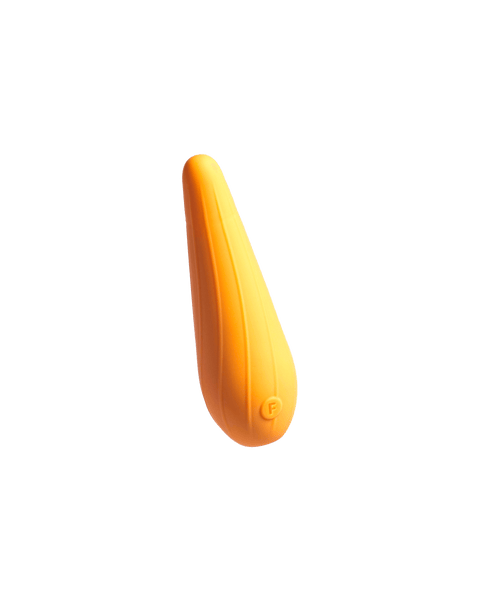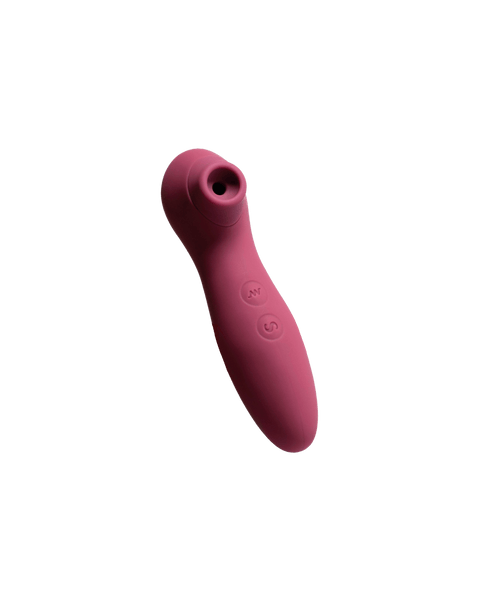For many of us, menopause is something we’ve put in the, ‘I’ll worry about it later’ basket, along with reconciling our superannuation and paying off our HECS debt.
We assume that we’ll just deal with it when it happens, and in the meantime most of us don’t spend much time talking about it or even thinking about it.
But we reckon that menopause is misunderstood, and that part of the reason for that misunderstanding is our lack of knowledge around what menopause actually is.
As we learned this week from menopause wellness specialist Sandy Davies, “mentioning the ‘M word’ in mixed-age, diverse company is often the fastest way to clear the room”. But it doesn’t have to be that way.
In our forties, thirties, and even twenties, we should be aware of menopause and educated about the changes it can bring to our bodies and the bodies of people we care about.
So today we’re going to explore what menopause is, and what it means for your sex life. Spoiler alert: it’s not bad news, and it’s probably not what you expect.
***
For most people who get periods, menopause occurs between the ages of 45 to 60. The word ‘menopause’ actually refers to the final menstrual cycle that we experience, although during the 4—8 years beforehand our body’s hormone levels begin to fluctuate. This is referred to as ‘peri-menopause’, and the time after menopause is referred to as ‘post-menopause’1.
If you ever thought menopause was something that only happened to older people, you might be surprised to know that many of us begin experiencing symptoms in our forties. People who undergo some medical treatments may experience menopause even earlier.
“Many of us still view menopause as something that impacts us when we hit our gran’s age, not when we’re in the stride of our forties,” says Sandy, who is based in far-North Queensland.
“Because we feel we’re too young to be experiencing perimenopausal issues, we usually use denial as our best defense for far too long before digging deeper, consulting our GP, and doing the research.”
So if you’re in your forties or even in your late thirties, it’s worth exploring what menopause may look like for you—and if you’ve been experiencing some common symptoms of menopause, it could be worth speaking with your GP for some advice and support.
Menopause is a different experience for everyone, but common symptoms can include irregular or less frequent periods, insomnia, changes in mood, night sweats, and hot flushes2. However, our friends at Juniper note that there are can be up to 34 symptoms that we can experience when approaching menopause, including weight gain and brain fog.
There are other common symptoms of menopause, too—ones that can affect our sex life pretty directly. Vaginal dryness is common, as is an overall loss of libido1,2.
“My biggest symptom, even more than brain fog, was vulvar and vaginal dryness,” says Sandy. “That impacts my day-to-day life in so many more ways than solely sex and intimacy.
“It can impact our ability to concentrate, because even toilet paper can cause micro-tears as our intimate skin begins to thin. Dryness pecks away at our mojo.”
Symptoms like these can be uncomfortable and painful; as Sandy says, they can affect our concentration, confidence, and our overall sense of self.
“As we reach the end of that peri-menopausal hormonal rollercoaster and transition to post-menopause, a flatlining libido happens to most of us,” she adds. “It can be quite confrontational and disheartening because a waning libido pecks away at our confidence. It is natural, but it is not a death knell.”
Despite the fact that our generation is pretty good at being open and honest when it comes to sexuality, menopause is something we still don’t talk a lot about. Because of this, many people may think that these symptoms are something we just have to ‘grin and bear’.
But Sandy reckons that’s the last thing we should be doing. To her, although menopause represents a change, it doesn’t represent an ending—just an opportunity to do things a bit differently.
“The only assumption [about menopause] that is wrong is that your sex life is over. It is not over, it is simply time to redefine pleasure. Your body needs a little assistance with lubrication, and arousal can be a little bit more of a slow burn, but fan the flame and magic happens.
“And to be honest, for many of us, we may not have sex as often as we did in our twenties, but our orgasms are deeper, longer and more satisfying than all our previous eras combined.”
Even if you’re not in the mood for penetrative sex or the same forms of play as you used to enjoy, Sandy still recommends making time for intimacy.
“Kisses, hugs and cuddles are great for our health and wellbeing, don’t abandon them because your arousal levels have diminished.”
It’s also worth speaking with your partner about how you’re feeling, so they can support you during menopause and gain an understanding of where you’re at.
“If we are with a life partner, it can be a difficult transition period for them, too, because initially they can feel rejected and misinterpret our lack of libido as personal. The good news is we can help desire sneak back into our lives through mindfulness and intent,” Sandy advises.
“Be honest and open with your partner or partners about the hormonal and physiological impact menopause is having on your life. Speak about it with your GP. Voicing it out loud is the first step to reigniting your passion. Things do change in the peri- and post-menopausal era, but don’t give up your sexy self. Redefine foreplay. Its okay to have sexual play and happy intimate moments that don’t lead to full intercourse. Don’t give up cuddles and banter simply because they don’t always lead to a full on orgasmic sesh.”
And the biggest thing we can do to help ourselves during menopause, and even during the years leading up to it?
“Conversation. For real,” Sandy says. “Having more conversations about menopause empowers us all. It gives us the tools to navigate the journey and it ensures the important people in our lives acquire the knowledge to support and encourage us.
“Our sex lives are not over. Sex may be less frequent, but accept the changes in your body and you might just discover the most earth-shattering moments are yet to come.”
References
- Australian Menopause Society, ‘What is menopause?’, https://www.menopause.org.au/hp/information-sheets/what-is-menopause, accessed 7 December 2021.
- Health Direct, ‘Menopause - symptoms and treatments’, https://www.healthdirect.gov.au/menopause#symptoms, accessed 7 December 2021.







